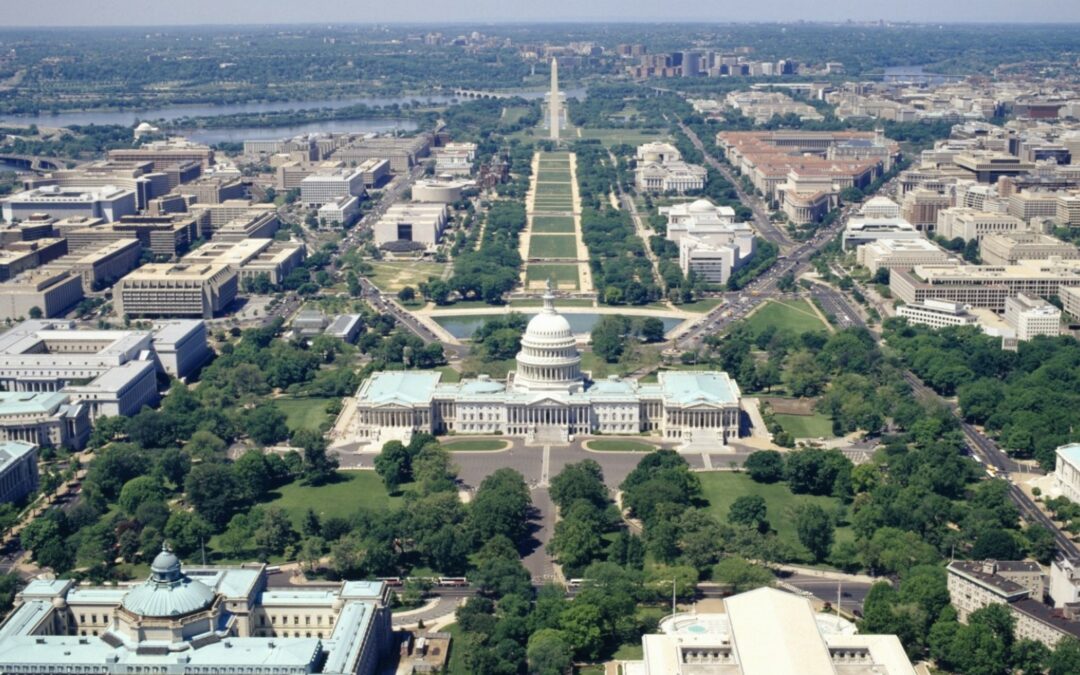Yesterday the US House passed The Washington, DC Admission Act (H.R. 51) which would make the most populated federal enclave the 51st state if it passes the Senate. Some people that live in DC say they lack representation because they are not part of a State. In this article, we will dive into Article 1, Section 8, Clause 17 known as the Enclave Clause (aka Jurisdiction Clause) and we will compare it to another federal enclave in Colorado that has residents. The Jurisdiction Clause is often misunderstood and ignored on federal lands in the Western United States. Luckily you’re on the website with the most federal jurisdiction reports ever assembled pertaining to federal lands.
In 1790, Maryland ceded the federal district that became Washington DC. The town of Georgetown went from a city in Maryland to a federal enclave overnight. Virginia withdrew its lands from the DC enclave in 1847. In 1801, with the passage of the Organic Act, Congress took control per the Enclave Clause and the federal government has had exclusive jurisdiction ever since. A detailed reference of this process and the types of jurisdiction on federal lands is provided in the federal report commissioned by President Eisenhower in 1956, Jurisdiction Over Federal Areas Within the State, Part 1.
From 1841 to 1940 and the passage of Section 355 of the Revised Statutes, when the federal government purchased land in a state it acquired exclusive jurisdiction by default. After Section 355 passed, the state legislature must provide a cession of jurisdiction over lands acquired by the federal government, and per federal law 40 USC 3112, the federal government must formally accept and record that acceptance to receive the cession by the state. Around this time, the states started to provide cessions of Exclusive, Concurrent (shared jurisdiction), and Partial jurisdiction to the federal government over purchased lands. All pubic domain (public lands) remained in a proprietorial interest only.
In 1929, Colorado passed CRS 3-1-130 (link shows bill and federal acceptance) providing a cession of exclusive jurisdiction over Rocky Mountain National Park making it a federal enclave with reservations of partial jurisdiction for the state. There are permanent residents that live within Rocky Mountain National Park. Within CRS 3-1-130 wise Colorado state legislatures also preserved for the residents of the National Park, the right to vote in all elections (county, state and federal) “… and saving, also, to the persons residing in said park now or hereafter the right to vote at all elections held within the county or counties in which said tracts are situated.”
Once a state provides a cession of jurisdiction to the federal government the only way to get jurisdiction or partial jurisdiction returned is a retrocession from Congress. A state cannot take unilateral action to regain or adjust its cession of jurisdiction, just like the federal government cannot take unilateral action to acquire a state’s jurisdiction. In this case, under no fault of their own, the State of Maryland did not reserve the right to vote in 1801 for the residents within the Washington DC area. That included the city of Georgetown at that time.
The only constitutional fix for those residing in Washington DC that feel disenfranchised would be for Congress to follow the example of Rocky Mountain National Park and the Colorado legislatures defined in CRS 3-1-130. Congress should immediately provide a retrocession of partial jurisdiction that cedes to DC residents the right to vote in all local, state, and national elections, held within Maryland. This retrocession of jurisdiction would then need to be accepted by the Maryland Legislature. Problem solved and the Constitution is preserved.
Note another good reference for the Enclave Clause and its processes is the Assimilative Crimes Act and 18 US Code § 7(3). This legal cession process is defined within Clause 17, 40 USC § 3112 (RS 355), and the Assimilative Crimes Act. Also see these GSA Reports, Part I (1956), Part II (1957), and the Inventory Report (1962). Federal enclaves are subject to the Assimilative Crimes Act 18 U.S.C § 13 and territorial jurisdiction per 18 U.S.C § Section 7 (3).
One main issue with the idea that a federal enclave can become a new State is common sense, Maryland gave us the land that encompasses Washington DC, if the federal enclave is dissolved then the lands should go back to the State of Maryland. This is currently what happens when the federal government disposes of or sells land, buildings, and forts within a state today. Those lands go back to the state as private property, under the state’s jurisdiction. Forming the 51st state from a federal enclave that was developed under the Jurisdiction Clause is contrary to what our founders intended and is likely unconstitutional.

